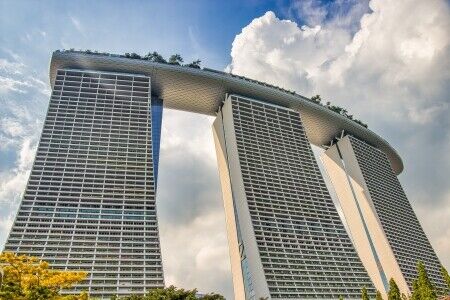Little seems to have happened since local authorities helped the U.S. root out an alleged «Singapore Solution» conspiracy.
The indictment by the U.S. of six Swiss bankers in late September accused of helping wealthy Americans hide money offshore via a so-called «Singapore Solution» scheme hasn’t prompted subsequent enforcement action in the city-state.
This raises questions about how effectively the city-state fights financial crime. Particularly so, when it comes to hindering the activities of unlicensed financial institutions and barring the use of undeclared local bank accounts.
In the sealed U.S. indictment, a Singapore asset management company, ostensibly a wholly-owned subsidiary of Swiss-based Ihag Holding, appears to be critical to the overall plot.
Singapore-U.S. Cooperation
When asked whether this entity was licensed in Singapore, the MAS said in an emailed response to finews.asia that «supervisory dealings with FIs [financial institutions] is confidential in nature» but that it was «aware of the case.»
«The Commercial Affairs Department (CAD) of the Singapore Police Force and Singapore’s Attorney General’s Chambers (AGC) had worked closely with the U.S. authorities on the joint investigations, which led to the successful recovery of the criminal proceeds,» the MAS wrote in the same email.
But a review of the MAS website of any similarly named entities by finews.asia does not appear to reveal any licensed institution connected with Ihag. As part of that, it confirmed that Allied Finance Trust AG, the Swiss consulting firm for wealthy individuals, also mentioned as part of the scheme, was not licensed in Singapore.
Disparate Swiss Interests
Reviews of the Ihag Private Bank and Ihag Holding websites do not indicate any kind of related entity in Singapore. The group comprises a small rump of former Swiss blue-chip industrial manufacturer and defense contractor Oerlikon-Buehrle, including Pilatus Aircraft, as well as a private museum in Zurich owning Van Gogh’s The Sower, and several other businesses, tourism, real estate, and philanthropic interests.
Given the prominence of the Buehrle family of industrialists in Swiss society, and the former importance of the group to the Helvetian economy before the main brunt of activities was shrunk into Oerlikon, it remains a very pertinent, but unanswered, question as to whether the asset management entity portrayed in the indictment is licensed in Singapore or not – and whether it is in the process of being examined by its regulator or receiving any form of censure.
In the indictment, the U.S. Department of Justice (DoJ) also claims that undeclared accounts at various banks in Singapore were used as part of the scheme. They indicate extensive and circular transfers of money with little economic purpose, with at least one undeclared account being used in Singapore until November 2014.
Widening Tax Scheme
Singapore AML law was introduced in 2007 (MAS 626). Already then, the regulator indicated that licensed institutes should not open or maintain anonymous or accounts in fictitious names. They were also required to fully identify and verify customers, including relevant company directors.
Despite that, and various updates of the law since, the scheme widened in 2012 when one of the now-indicted Swiss bankers and an Ihag employee in Switzerland transferred some of the client family’s funds to an additional two different bank accounts held by new nominee entities at banks in Singapore. As part of this, they apparently discussed opening undeclared bank accounts in Singapore while opening a trust vehicle.
Importantly, that same year, the Singapore asset manager transferred approximately $7.2 million to an account at another Singapore bank held by another asset management company also connected to the scheme. A similar payment was made four days later from the first Singapore asset manager to the undeclared accounts.
After that, also with little visible economic purpose, roughly the same sum was transferred from one of the undeclared accounts to the Singapore branch of a Swiss bank, as per the indictment. All the transfers, on the surface, would appear to be clear red flags likely warranting a suspicious transaction report to the MAS by any licensed institution – at the very minimum.
Cash Pick-Ups Via Asset Manager
One of the clients who benefited from the alleged conspiracy also ostensibly visited the Singapore asset manager to collect cash 11 times between 2011 and 2014, a highly irregular activity for an asset manager – also likely to merit reporting.
The MAS added in the email sent to finews asia that it «closely supervises» financial institutions to ensure they comply with the local financial crime law, and that this includes the «laundering of proceeds of serious tax offences.»
«MAS will not hesitate to take firm enforcement action if a financial institution is found to have facilitated transactions for money laundering purposes, in breach of our requirements. The same supervisory scrutiny was applied in this case,» it added in the same email.
No Visible Action
However, there does not appear to be any action as of yet. The more time that passes without any related local enforcement only serves to raise suspicions that the MAS had been caught on the defensive after one of the clients confessed to U.S. authorities.
It also suggests additional jurisdictional work is needed to safeguard against unlicensed asset managers and undeclared bank accounts.
Simply submitting licensed entities to endless thematic inspections and remediation, while levying heavy fines for a few well-publicized international incidents, such as that for the 1MDB and Falcon Bank scandals, is not nearly enough.




































